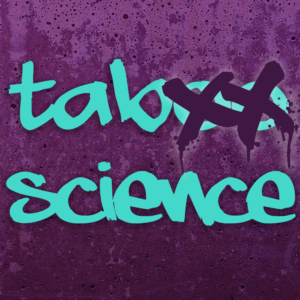Recent Posts
-
Trans 101: How to Be an Ally Without Making It Weird
Good intentions, it turns out, are not the same thing as good allyship — and sometimes they can actually make things worse. In this season finale, diversity consultant Davey Shlasko breaks down the unconscious assumptions that make pronouns harder than they should be, why trying harder often backfires, and what being a genuine ally actually looks like in practice. Woven through his advice, you'll hear from the community voices you've met all season talking about what it feels like to be on the receiving end. We cover the science of why you "miscategorize" trans people, how to recover from misgendering without making it about yourself, and how to show up for trans people even when there are no trans people in the room. Plus: a pronoun exercise that is genuinely kind of fun. If you've listened to this whole season, this episode is where it all lands.
-
Trans 101: What Detransitioners Want You to Know
If you support trans people, you probably believe that detransition almost never happens and when it does, it's only due to discrimination. But new research shows that's not the full picture—and avoiding the conversation isn't protecting anyone. This episode explores the largest study ever designed to understand detransition, featuring two people with completely opposite experiences. One transitioned in her twenties and later regretted it, losing her entire friend group not when she detransitioned but when she admitted the regret. The other was blocked from hormones by a gatekeeping therapist and spent 13 years forced to live as the wrong gender before finally retransitioning. One needed more scrutiny before accessing care, the other needed fewer barriers—yet both were failed by the system. Researcher Kinnon MacKinnon breaks down what the data actually shows and why preventing detransition might be the wrong goal entirely. This isn't ammunition for either side of the political battle. It's about what happens when we're too afraid to acknowledge complexity.
-
Trans 101: Trans Athletes & What the Science Actually Says
How many studies does it take for something to be "settled science"? For trans athletes—who face state bans across the country, which recently reached the Supreme Court—there's hardly any research at all. In this episode, we're digging into what that research actually found, and it's way more complicated than the “fairness” advocates would have you believe. Dr. Blair Hamilton walks us through findings showing that trans people gain some advantages and lose others after transitioning. Champion triathlete Chris Mosier talks about what trans kids actually lose when they're banned from sports—and why the real threats to women's athletics have nothing to do with trans people. Whether you’re against trans athletes competing or you’re just trying to understand why politicians are obsessed with a few dozen athletes, this episode will uncover the nuance in the noise.
-
Trans 101: Dating While Trans (with Julia Serano)
Every notification is a gamble: Is this a genuine connection or another person who swiped right just to tell you you're disgusting? Welcome to dating while trans. In this episode, we're exploring the disclosure dilemmas, infrastructure failures, and stigma that make dating "super hell" for trans people—featuring author and theorist Julia Serano (Whipping Girl). You'll hear why the design of dating apps fails trans people, how anti-trans stigma poisons relationships even when the attraction is real, what "chasers" are and why the fetish mindset is so harmful, and why trans women face wildly different (and more dangerous) dating experiences than trans men. Not attracted to trans people? Nobody’s gonna force you to change that—but we are going to help you examine whether your feelings come from you, or from the stigma society planted in your head.
-
Trans 101: When a Loved One Comes Out, What Should You Do?
When someone in your family comes out as trans, what do you actually do? Turns out "I love you, I believe you" goes a long way—but it's also way more complicated than that. In this episode, we're exploring why parents have the hardest time with transition, why aunts and grandmothers often step up when parents can't, and whether families who reject ever come back around (most do!). We'll hear from parents about those pivotal coming-out moments and the fears that kept them up at night, break down why rejection usually isn't sudden and why extended family tends to be more accepting than you'd expect, and talk to trans people about what it's like when your family doesn't accept you—and how some are thriving anyway. This episode won't sugarcoat how hard the current moment is, but it will show you that family acceptance isn't the only path to a good life.
-
Trans 101: Finding Healthcare That Won’t Kill You
Here's a wild statistic: nearly a quarter of trans people in the U.S. avoid going to the doctor specifically because they expect to be disrespected. And honestly? They're probably right. In this episode of Taboo Science, we're pulling back the curtain on a healthcare system that requires trans patients to prove they're "really trans," charges thousands of dollars for basic care, and somehow graduates doctors who've never learned how to treat trans bodies. You'll hear from sociologist stef shuster about the folklore of trans medicine that doctors still believe, psychologist Stephanie Budge about the critical difference between over-emphasizing and under-emphasizing gender in treatment, and comedian Max Gross about what it's like to be your own medical educator at every single appointment. This episode is not gonna make you like your insurance company, but I promise there's hope at the end.
-
Nonbinary 101: Beyond the Binary
What if the government declared you don't exist? In 2025, that's exactly what happened to nonbinary people—but they're not going anywhere. This episode breaks down what nonbinary actually means (hint: it's not "between man and woman"), why they/them pronouns are harder for our brains to process, and how some nonbinary people use hormones to craft their perfect gender recipe. With help from psychologist Dr. Em Matsuno and our sensitivity reader Newt Schottelkotte, we're exploring everything from microdosing testosterone to why misgendering is the default for nonbinary folks—along with the benefits to the journey of gender discovery. Whether you're nonbinary yourself, know someone who is, or are just trying to figure out how to not mess up someone's pronouns, this episode will help you understand what it means to make your own gender from scratch.
-
Trans 101: Trans Kids & the Reality of Youth Transition
The right says doctors are mutilating children. The left says nothing permanent is happening. They're both oversimplifying, but they're not equally wrong. Meet Maya, who started transitioning at 13 with puberty blockers, then hormones, then surgery at 16. Now 25 and thriving, she walks us through what actually happened—and why she says it saved her life. We also talk to pediatrician Dr. Michelle Forcier, who breaks down the real medical process. We're busting the "most trans kids change their minds" myth with actual research, covering what puberty blockers really do, why some trans kids hate being on them, and the question nobody wants to ask: what happens to kids who don't get care? Turns out inaction is also a decision, and it comes with permanent consequences too. This episode won't give you easy answers, but it will show you what the science actually says and why everyone who knows trans youth best says the same thing: listen to them. Content note: This episode includes discussion of self-harm and suicidality.
-
Trans 101: How Transgender Hormone Therapy Changes Body and Brain
For decades, doctors tried to psychoanalyze trans people out of being trans. Spoiler: it didn't work. This episode dives into the medical reality of gender transition—from how hormones actually work at the cellular level to the emotional rollercoaster of a second puberty. You'll learn what estrogen and testosterone really do to the body, what bottom growth actually means, and how modern surgery can create everything from boobs to fully functional penises with hydraulic erections. We cover the psychological shifts, the physical changes, the hilarious terminology trans people have coined, and why medical transition isn't about "fixing" anyone—it's about letting people finally be themselves.
-
Trans 101: Everything You Think You Know (But Probably Don’t)
Got a rainbow sticker? Follow trans creators? Have trans friends? Cool. But if you're like most people—even the well-meaning ones—you probably know just enough about trans people to be dangerous. In this episode, we're dismantling the "born in the wrong body" narrative and exploring what being trans actually means. With help from University of Victoria transgender studies chair Dr. Aaron Devor, paleontologist Riley Black, PhD student Hibby Thach, and comedian Charlie James, we're breaking down sex vs. gender vs. gender expression, debunking the "social contagion" myth, and explaining why asking "but have you had The Surgery?" is never okay. Trans people are rarer than redheads, but somehow they're at the center of a political firestorm—so let's actually understand what we're talking about.
















